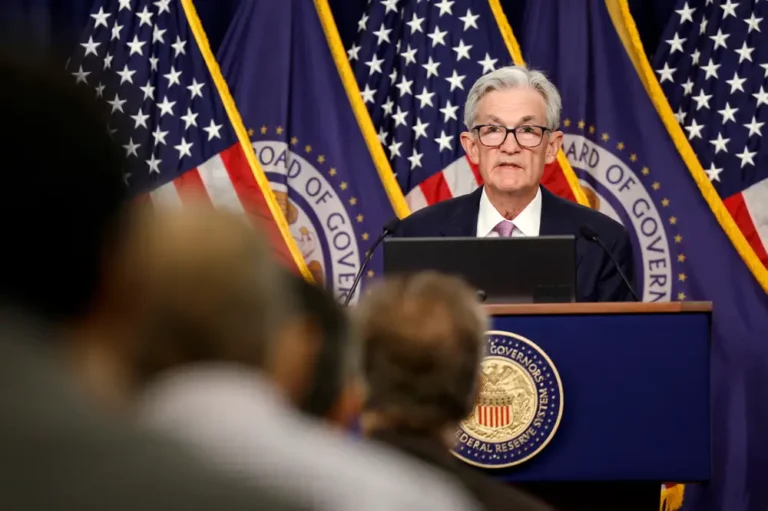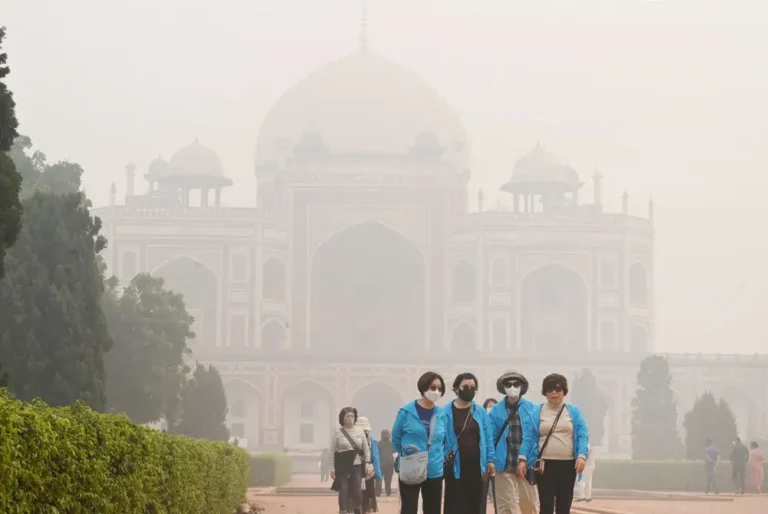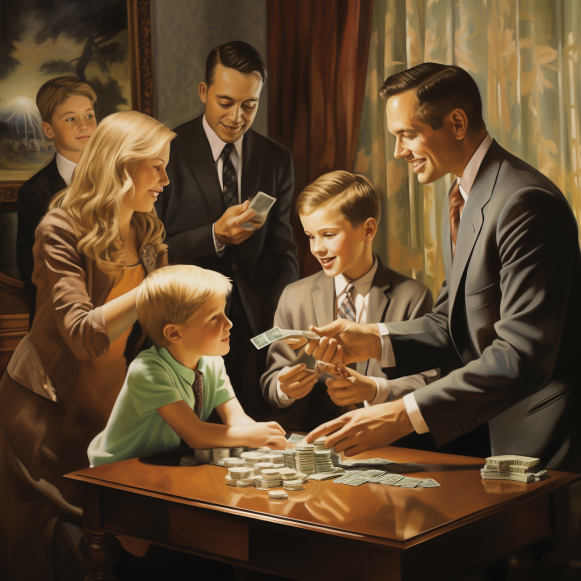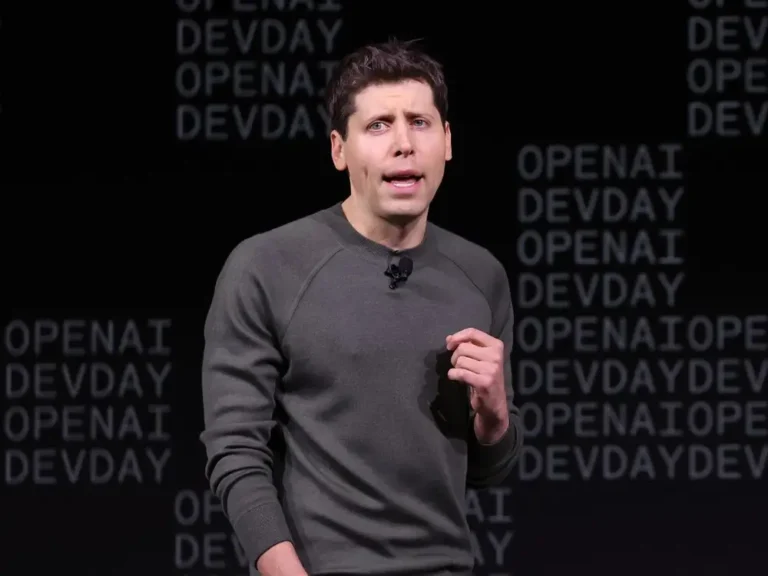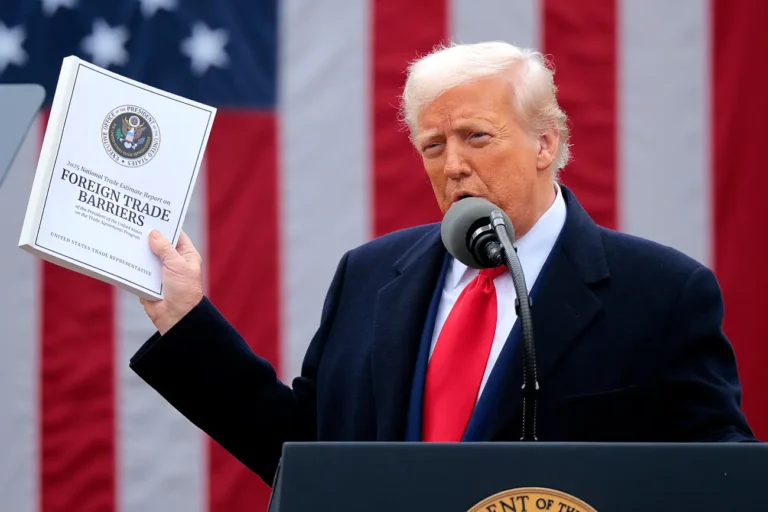Blackstone’s Steve Schwarzman was a trade negotiator for Donald Trump’s first term. Here’s what it took to get the president to a deal.
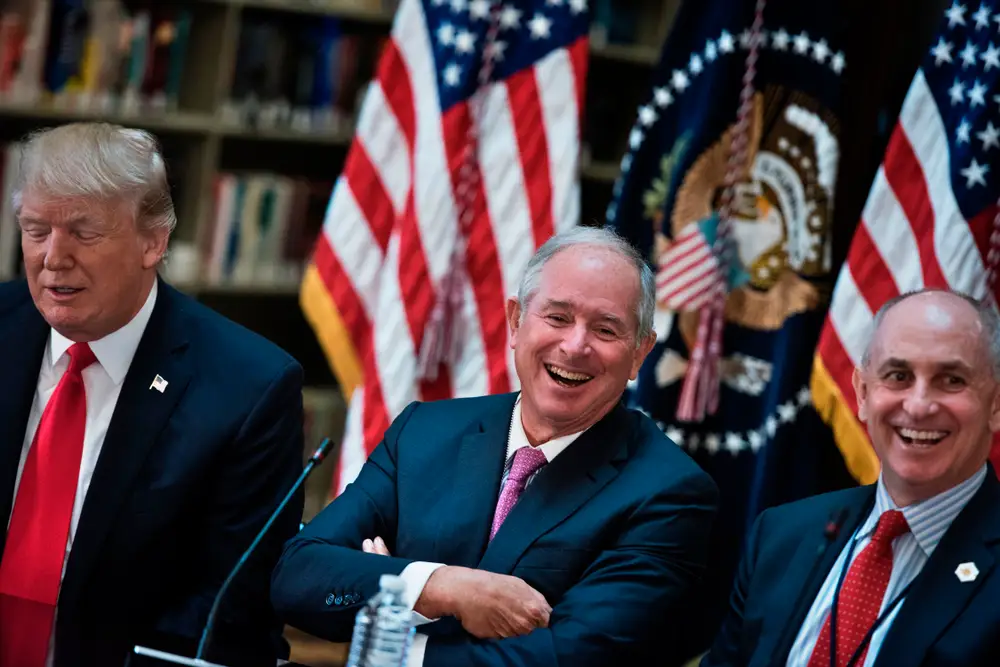
From L: Donald Trump, Steve Schwarzman, and Chris Liddell
I gave him my view on what it would take to successfully negotiate a deal and told him that the Americans wanted the Canadians to put their terms on paper. The prime minister said he was worried the Americans would leak them and use them against him. I told him that I did deals for a living and the moment had come for him to stop agonizing. If he refused to meet the US demands of a deal, Canada would almost certainly go into a recession, and no politician wins reelection in a recession. If he did a deal, at least he’d have a chance at political survival.
He urged Trump to make a deal with Trudeau.
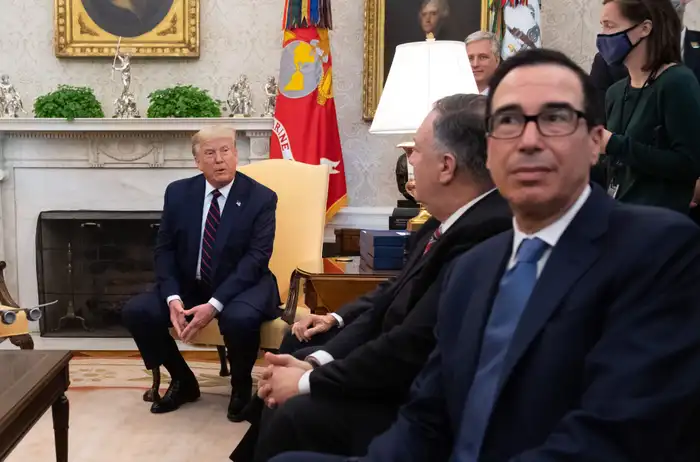
Steve Mnuchin during Trump’s first term in the White House
With the President’s support, I became involved in trade talks between the United States and China, and the United States, Canada, and Mexico for a simple reason: I knew the people on all sides and they trusted me. Aside from the president, I have known Steve Mnuchin, the treasury secretary, for years. We have apartments in the same building in New York and are close, personal friends. I have known Wilbur Ross, the commerce secretary, for just as long. …
I had met then party secretary Xi Jinping, the current president of China, in 2007, and knew many of the members of the Standing Committee and the State Council. I met the Mexican president, Enrique Peña Nieto, in 2015, and he had endowed two Schwarzman Scholarships for students from Mexico. His finance minister, Luis Videgaray Caso, often called me or came by to talk whenever he was in New York. And on the Canadian side, I had known the foreign minister, Chrystia Freeland, since she was a journalist for the Financial Times. She had covered Blackstone, and I had always found her to be smart and well intentioned.
Schwarzman warned Trump that his trade wars could backfire.
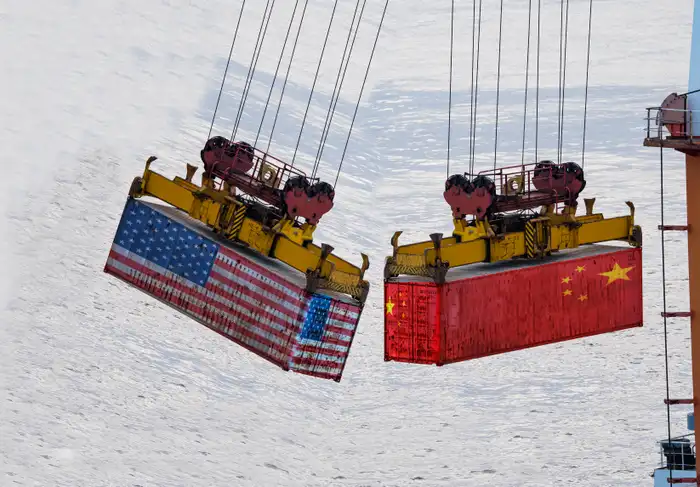
Concept photo for China-USA trade war conflict
The president had fired trade salvos at China and Europe, and even within the White House, there was concern that the administration was taking on too much. At the president’s request, I met with him to offer my advice on the situation. We met in the private quarters of the White House. When the president arrived, I told him that the way I saw it, the United States was now fighting a multifront trade war with Asia, Europe, and the Americas. America’s flanks were exposed, and as important as America is, we are only 23 percent of the global economy; give the remaining 77 percent time, and they would figure out a way to band together and make us miserable.
When Trump refused to meet with Canada’s Justin Trudeau, Schwarzman stepped in to help.
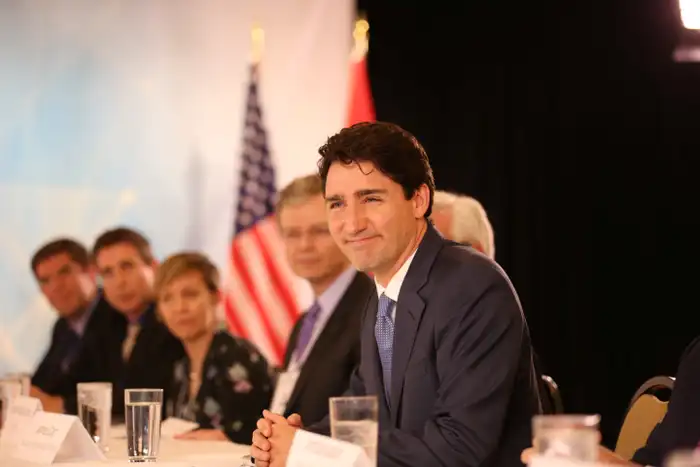
Canada’s Prime Minister Justin Trudeau in 2017.
The president had fired trade salvos at China and Europe, and even within the White House, there was concern that the administration was taking on too much. At the president’s request, I met with him to offer my advice on the situation. We met in the private quarters of the White House. When the president arrived, I told him that the way I saw it, the United States was now fighting a multifront trade war with Asia, Europe, and the Americas. America’s flanks were exposed, and as important as America is, we are only 23 percent of the global economy; give the remaining 77 percent time, and they would figure out a way to band together and make us miserable.
When Trump refused to meet with Canada’s Justin Trudeau, Schwarzman stepped in to help.
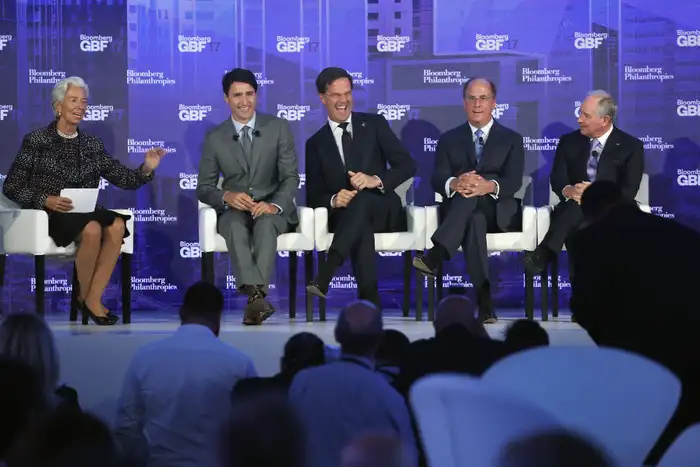
From L: Christine Lagarde, Justin Trudeau, Mark Rutte, Laurence Fink and Stephen Schwarzman in 2017
I gave him my view on what it would take to successfully negotiate a deal and told him that the Americans wanted the Canadians to put their terms on paper. The prime minister said he was worried the Americans would leak them and use them against him. I told him that I did deals for a living and the moment had come for him to stop agonizing. If he refused to meet the US demands of a deal, Canada would almost certainly go into a recession, and no politician wins reelection in a recession. If he did a deal, at least he’d have a chance at political survival.
He urged Trump to make a deal with Trudeau.
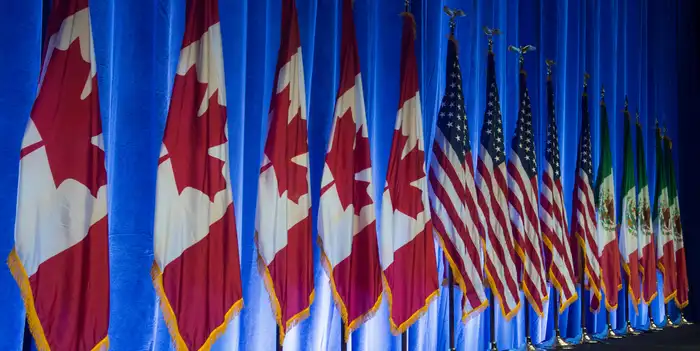
The flags of Canada, the United States, and Mexico
Agreeing to a deal would show the rest of the world that the United States was serious about renegotiating trade deals, not just blowing them up. With the midterm elections approaching, it would also be useful to have a deal as proof of the president’s campaign promises to voters, particularly in possible swing states in the Midwest.
He described a stressful 48 hours until there was a deal.
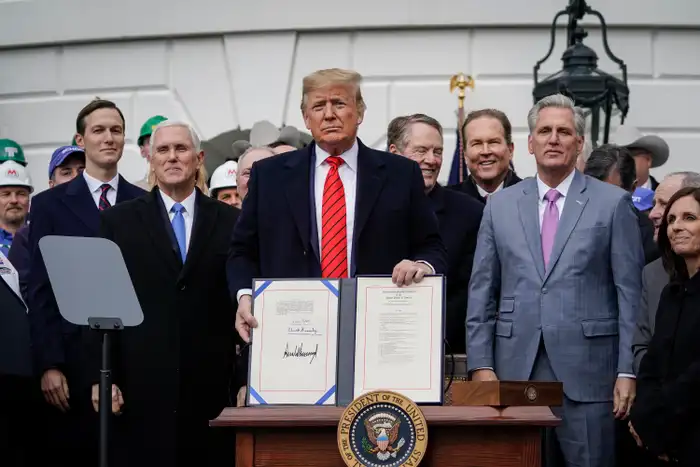
Trump signing the United States-Mexico-Canada Trade Agreement (USMCA)
I told him [Trudeau] I was seeing the president that evening at 5:30 and that any deal needed to be signed by midnight on Sunday, which all parties understood.
The prime minister looked at me from the couch. He said it would be tough, but he would do it. When I met with the president that evening, he reaffirmed that in my discussions with the Canadians, I had accurately reflected terms that the United States would accept. I called the Canadians to let them know. It took another forty-eight hours of waiting and pleading from all sides before finally, at 10:00 a.m. on Friday, the Americans received the Canadians’ written offer. Over the weekend, the details were worked out between the two countries, and on Monday, October 1, 2018, the president announced a revised NAFTA, the United States— Mexico— Canada Agreement, or USMCA.
Schwarzman also acted as a go-between for Trump and China’s Xi Jinping.
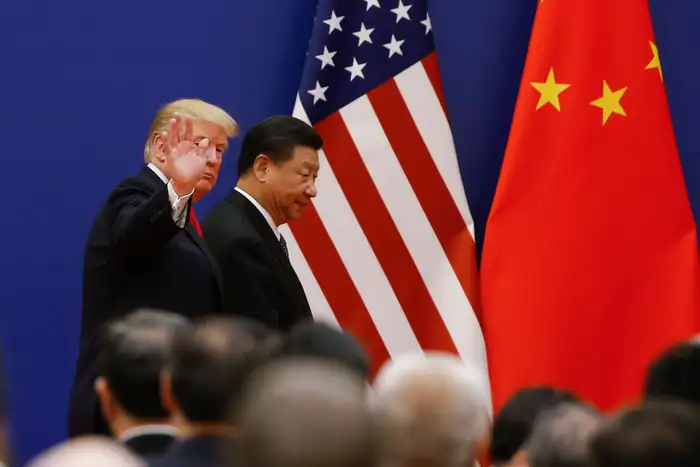
Donald Trump and Xi Jinping at a 2017 event in Beijing
I told him [Trudeau] I was seeing the president that evening at 5:30 and that any deal needed to be signed by midnight on Sunday, which all parties understood.
The prime minister looked at me from the couch. He said it would be tough, but he would do it. When I met with the president that evening, he reaffirmed that in my discussions with the Canadians, I had accurately reflected terms that the United States would accept. I called the Canadians to let them know. It took another forty-eight hours of waiting and pleading from all sides before finally, at 10:00 a.m. on Friday, the Americans received the Canadians’ written offer. Over the weekend, the details were worked out between the two countries, and on Monday, October 1, 2018, the president announced a revised NAFTA, the United States— Mexico— Canada Agreement, or USMCA.
Schwarzman also acted as a go-between for Trump and China’s Xi Jinping.
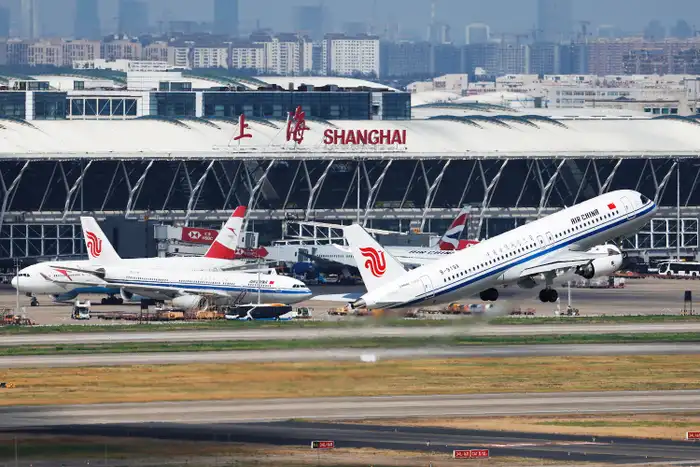
China Southern’s first C919 takes off.
In the meantime, the White House was ratcheting up its rhetoric, threatening higher tariffs and investigations into Chinese trade practices. China’s concerns about a trade war began to grow. Given that the president trusted me, he asked that I continue to be involved by being candid with the Chinese as to the US position. I made eight trips to China in 2018 alone on behalf of the administration, trying to assure China’s most senior officials that the president was not looking for a trade war.
Schwarzman guided Xi on how to cut a deal with Trump.
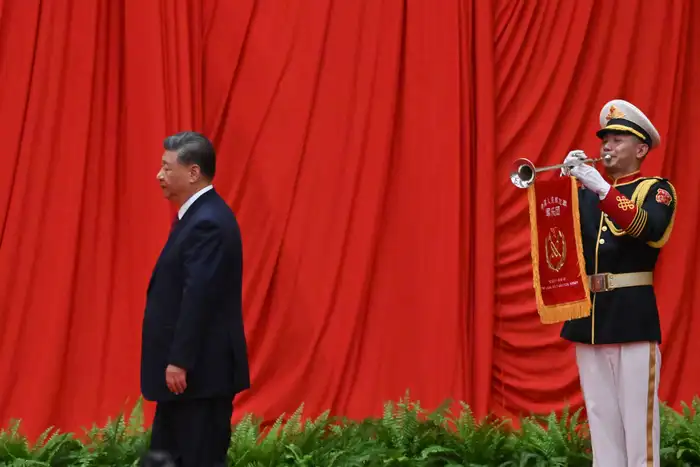
Chinese leader Xi Jinping.
He should not assume the Americans would come to a meeting with President Xi prepared with a list of demands. I thought that President Xi should come with his own list, offer five or six substantive proposals, and control the meeting. If our president felt the proposals were compelling and significant enough, he would engage. It was as simple as that. This wasn’t the Chinese way, Vice President Wang said, but he liked the idea. Both sides would have a chance to achieve their objectives. This was the way to a deal.
Schwarzman said no to the possibility of a formal role with the Trump White House.
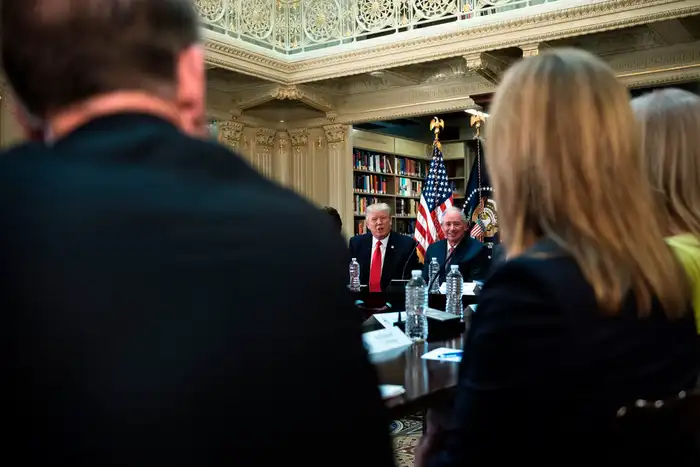
Schwarzman and Trump hold court during a meeting with executives.
There was little time to talk, but he called again a week later, this time asking if I might consider joining his team. I thanked him and told him I was very happy with my life as it was; I didn’t want to disrupt it. He told me he thought I’d say that, but also that he needed to hear directly from America’s business leaders as he tried to accelerate the economy.
Schwarzman also advised George H.W. Bush, the 41st president and the father of his former classmate at Yale
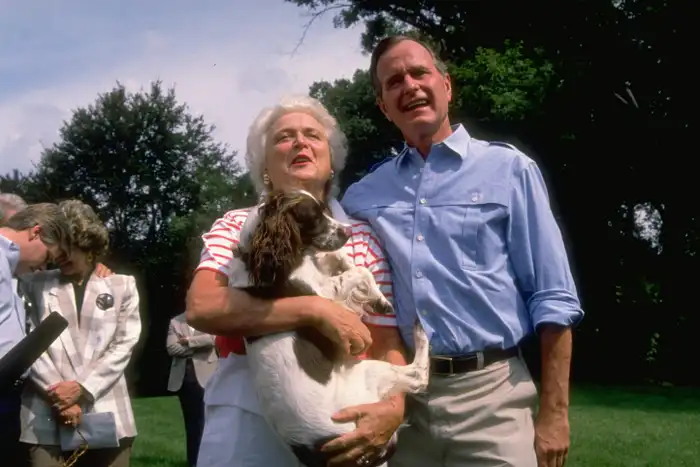
George and Barbara Bush
In the early 1990s, I was invited to a dinner at the White House. I was between marriages so I took a date, a magazine writer from New York. During the party, I approached President George H. W. Bush, whom I had met years before when he visited his son George W. at Yale. We stepped aside and talked intently for ten minutes. When I walked back to my date, she asked what on earth we had been talking about. Simple, I told her: I had some ideas for him about the ailing US economy, his biggest problem at the time. World leaders are no different from anyone else. If you talk about what’s on their mind and have something to offer, they will listen, Democrats, Republicans, princes, or prime ministers.
Although he was critical of President Obama, he stepped in to help with contentious budget negotiations.
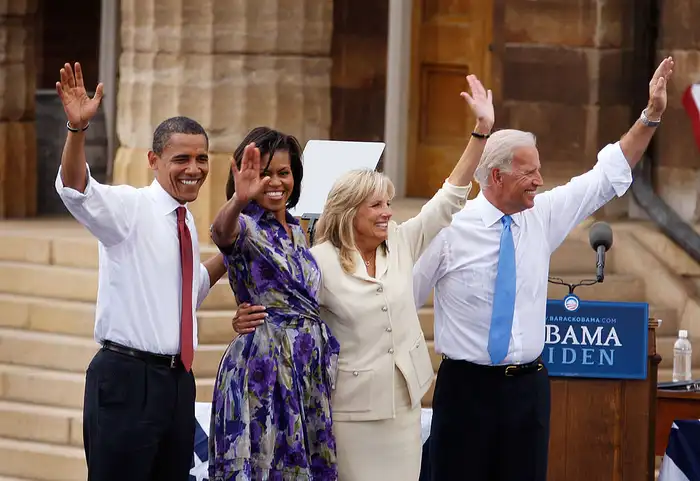
Barack Obama, his wife Michelle, then-Senator Joe Biden with his wife Jill.
“I could really use your help,” said the president.
If Democrats and Republicans failed to reach an agreement by January 1, they would trigger a set of automatic decreases in spending and increases in taxes embedded in previous budget agreements that would take the country over the so-called fiscal cliff.
“Are you saying you want to hire me to be your investment banker with no compensation?” I said. He laughed, gave me his private number, and said I could call any time of day or night— though preferably not after 11: 00 p.m. I admired him for reaching out to people outside Washington who might help break the logjam.
Schwarzman came back with a deal, but President Obama rejected it.
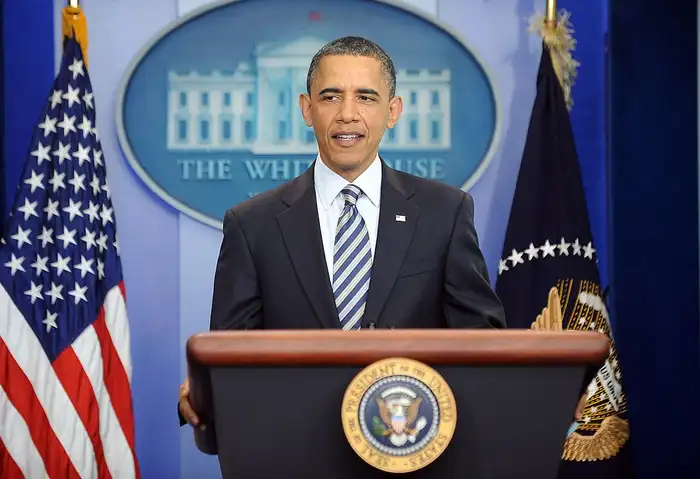
US President Barack Obama makes a statement on his birth certificate at the White House in Washington, DC, on April 27, 2011.
We got to what I thought was a fair offer from the Republican side— $1 trillion over ten years, $ 100 billion, or $ 10 billion a year, shy of the tax increases the Democrats wanted. The president wouldn’t accept it. I pleaded with him. Ten billion a year was a rounding error in the federal government’s $4 trillion annual budget. The Republicans had started these negotiations refusing to raise taxes at all, and now they were proposing $ 1 trillion of additional revenue by raising taxes, closing loopholes, and ending deductions. There was room here for a deal, but not much, and the window would likely slam shut if the Democrats continued to balk.”
You might know about deal making, the president told me, but he knew politics— a fair point from a man fresh from winning his second presidential term. He did not want to start this second term spending precious political capital by pushing a deal he knew he couldn’t get his own party to support.


